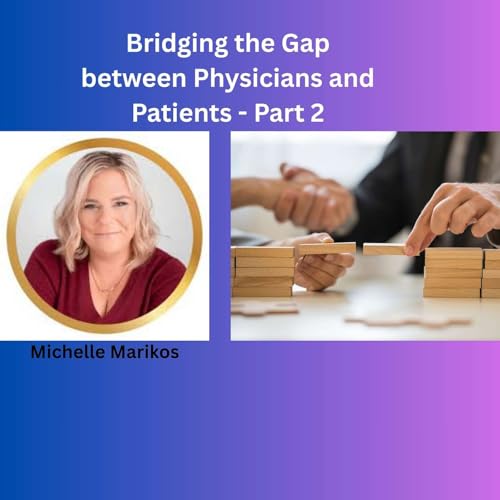
Ep 220 Chronic Pain Insights: Bridging the Gap in Patient-Provider Communication
Failed to add items
Add to basket failed.
Add to Wish List failed.
Remove from Wish List failed.
Follow podcast failed
Unfollow podcast failed
-
Narrated by:
-
By:
About this listen
Text Dr. Lenz any feedback or questions
Building Trust and Effective Communication in Chronic Pain Care with Michelle Makos
In part two of this enlightening conversation, Michelle Makos shares practical strategies for building trust and effective communication between patients and clinicians, emphasizing the importance of validating patients' experiences. Michelle discusses the innovative peer method that is helping transform pain care, reflecting on the complexities in the patient-provider relationship. She offers valuable insights into understanding patients' values and addresses the essential role of self-efficacy and motivation in managing chronic pain. Through her work with Moving Through Chronic Pain and the pain management commission in Oregon, Michelle is dedicated to improving care and education for both patients and providers. This episode is a must-watch for anyone dealing with or treating chronic pain.
00:00 Introduction and Recap of Part One
00:21 Building Trust and Effective Communication
03:14 Understanding Patient Values and Experiences
08:56 The Role of Peer Support in Chronic Pain Management
19:56 Functional Assessment and Validation
29:47 Conclusion and How to Get Connected
Click here for the YouTube channel
Support the show
When I started this podcast—and the book that came before it—I had my patients in mind. Office visits are short, but understanding complex, often misunderstood conditions like fibromyalgia takes time. That’s why I created this space: to offer education, validation, and hope. If you’ve been told fibromyalgia “isn’t real” or that it’s “all in your head,” know this—I see you. I believe you. You’re not alone. This podcast aims to affirm your experience and explain the science behind it. Whether you live with fibromyalgia, care for someone who does, or are a healthcare professional looking to better support patients, you’ll find trusted, evidence-based insights here, drawn from my 28+ years as an MD.
Please remember to talk with your doctor about your symptoms and care. This content doesn’t replace personal medical advice.*


